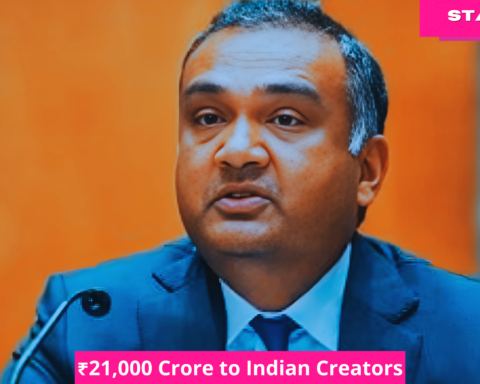
Indian-Origin Sriram Krishnan Appointed as Senior White House AI Advisor by US President Elect Trump.
by Mehwish Khan
·
The move sparks debates on India’s bureaucratic red tape and talent retention challenges.
In a groundbreaking development, US President-elect Donald Trump has appointed Indian-American entrepreneur and author Sriram Krishnan as Senior White House Policy Advisor on Artificial Intelligence (AI). With a stellar career spanning roles at Microsoft, Twitter, Yahoo!, Facebook, and Snap, Krishnan will now play a pivotal role in shaping America’s AI policies to maintain its global leadership in technology
The announcement has drawn attention not only to Krishnan’s remarkable achievements but also to India’s ongoing struggle with recruiting private sector experts into its bureaucracy, sparking online debates about talent recognition and systemic roadblocks.

The Indian Talent America Tapped
Hailing from Tamil Nadu, Krishnan is a graduate of SRM Valliammai Engineering College. His contributions to major tech companies include being a founding member of Microsoft’s Windows Azure team, a platform that revolutionized cloud computing.
In his new role, Krishnan will collaborate with the President’s Council of Advisors on Science and Technology, focusing on maintaining American supremacy in AI innovation. This appointment is being celebrated globally as a testament to Krishnan’s expertise and America’s ability to recognize and utilize top talent.
India’s Bureaucratic Roadblocks
Krishnan’s success has reignited conversations about India’s struggles with lateral hiring in its governance structure. Prime Minister Narendra Modi attempted to bring in private sector experts through lateral entry, announcing plans to recruit 45 joint secretaries, directors, and deputy secretaries. However, the initiative faced significant backlash, with accusations of bypassing reservation policies and internal resistance from the bureaucracy.
The plan was quietly shelved, leaving many questioning India’s ability to adapt to modern governance models.
Expert Opinions
Author and columnist Sadanand Dhume remarked that hiring Krishnan in the US was simpler than bringing him into a senior government role in India, highlighting systemic inefficiencies. On the other hand, security analyst Sushant Sareen pointed out that hiring a foreign citizen for a key government role in India is both infeasible and inadvisable.
Meanwhile, social media reactions have been split. One user lamented, “The USA values talent and innovation, while India still struggles with mediocrity and red tape.” Others argued that the roots of India’s bureaucratic inefficiency lie in policies implemented during Indira Gandhi’s tenure, which continue to stifle progress.
What This Means for India
India’s challenges in retaining and utilizing top talent highlight systemic issues such as red tape, politicization of appointments, and resistance to change. Critics argue that these factors contribute to the ongoing brain drain, with many skilled professionals like Krishnan choosing opportunities abroad.
To reverse this trend, India needs to:
1. Streamline recruitment processes to value expertise over hierarchy.
2. Provide competitive incentives to retain talent.
3. Foster a culture of innovation and meritocracy in governance.
The Larger Picture
Sriram Krishnan’s journey from Tamil Nadu to the White House is a reminder of the importance of recognizing and rewarding talent. While the US continues to leverage global expertise to stay ahead, India must introspect and reform its systems to prevent losing its brightest minds.
As Krishnan begins his tenure shaping America’s AI policies, his story stands as both an inspiration and a challenge for India to unlock its true potential.
Recent Stories:
Mehwish drives StartupByDoc, a platform dedicated to delivering the latest business news, startup trends, and insider gossip. With a sharp focus on the ever evolving startup landscape, she provides timely and valuable analysis that keeps entrepreneurs ahead of the curve. From breaking news to emerging trends, Mehwish’s expert insights help startups navigate the fast paced world of business, making sense of the changes and opportunities shaping the future of entrepreneurship.
- Reliance Faces ₹24,500 Crore Demand Notice Over Gas Extraction Dispute
- Paytm Faces ₹1.19 Crore GST Demand; CEO Fined ₹60 Lakh for Non-Compliance
- Ratan Tata’s Millennial Manager Shantanu Naidu Gets Top Role at Tata Motors, Shares Emotional Post
- Blinkit Rebrands as ‘Inkit’ to Promote Voter Awareness Ahead of Delhi Elections













